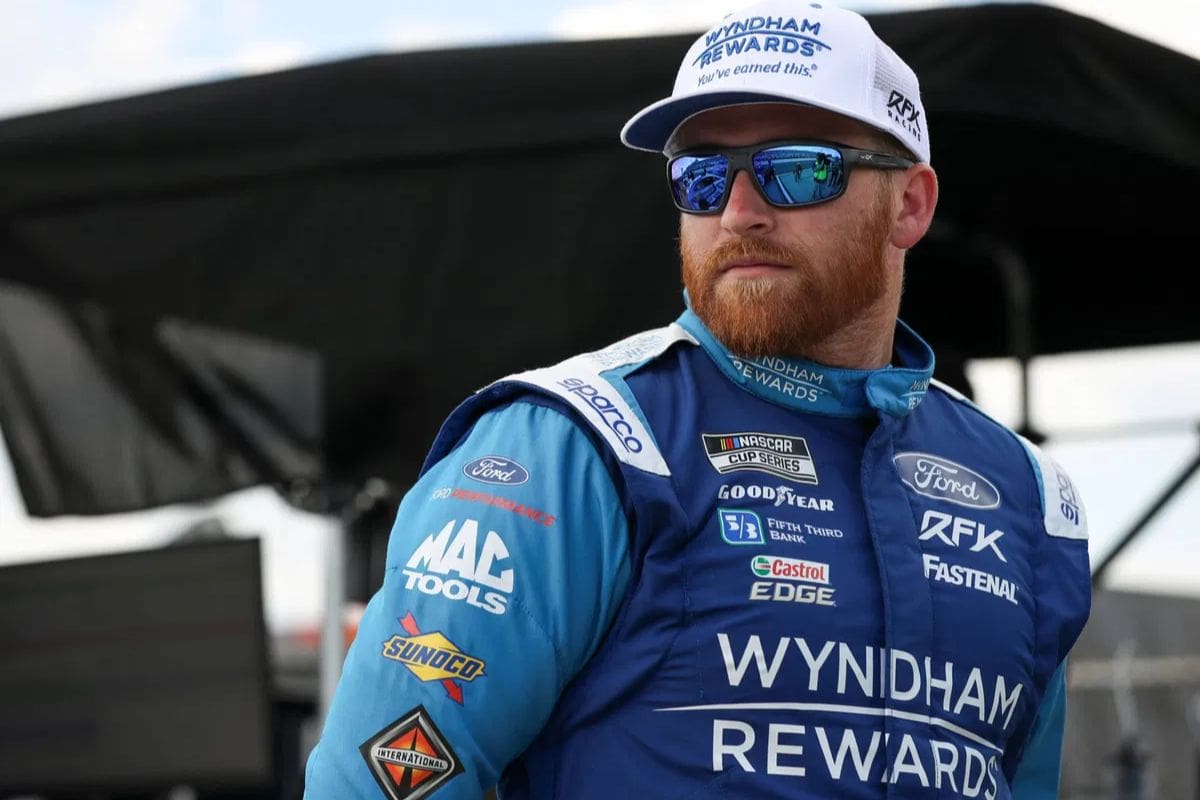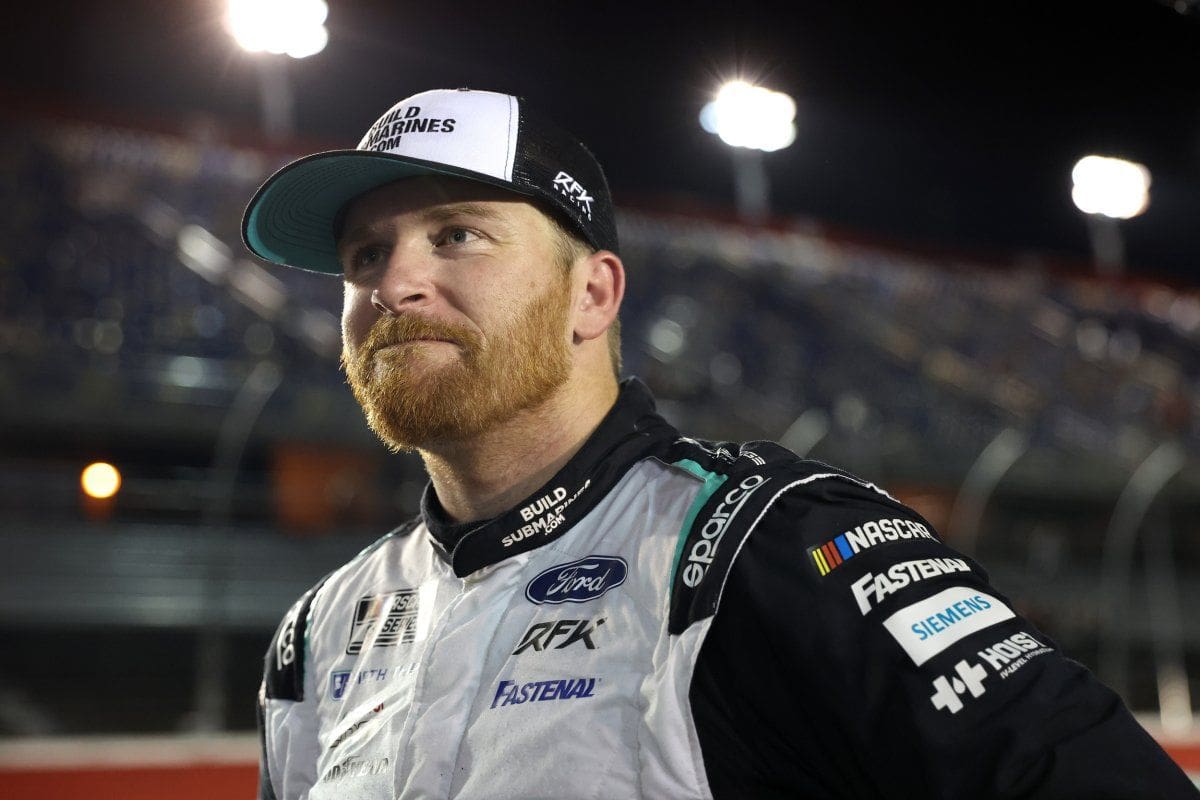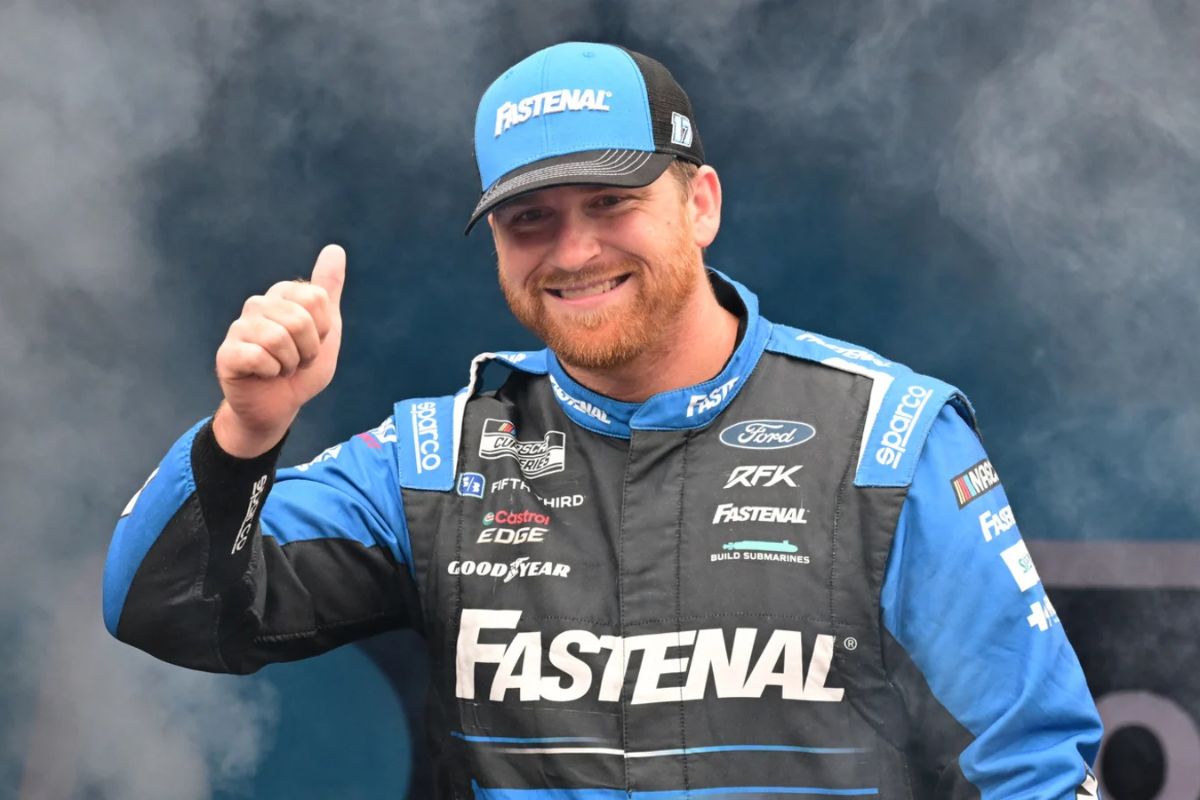Chris Buescher’s Playoff Heartbreak: Chris Buescher‘s disappointing exit from the playoffs serves as a poignant reminder of the unpredictable nature of NASCAR, reflecting both the highs and lows of competitive racing. Despite a commendable regular season, RFK Racing faces critical questions about their strategy moving forward. As they utilize the remaining races to refine their performance and investigate groundbreaking tactics, the team’s resilience and Buescher’s experience will be crucial. What specific adjustments will RFK Racing implement to guarantee a stronger showing next season, and how might these changes reshape their path in the increasingly competitive landscape of NASCAR?
Key Highlights
- Chris Buescher’s strong regular season included five top-five finishes and two stage wins, showcasing his competitive potential moving forward.
- RFK Racing plans to utilize the remainder of the season for experimentation and development to enhance future performance.
- The team’s focus will be on testing different configurations to identify improvements for next season.
- Buescher’s emotional maturity and perspective will be key as he aims for consistency and risk management in upcoming races.
- The volatility of the playoff format underscores the importance of learning from mistakes to avoid similar pitfalls in future seasons.
Chris Buescher Reflects on Missing the Playoffs
In the wake of a season filled with potential, Chris Buescher finds himself grappling with the disappointment of missing the playoffs. The Texas native, who drives the No. 17 RFK Racing Ford, had exhibited commendable performance throughout the regular season, yet the climax of the year left him outside the coveted 16-driver playoff field.
Speaking frankly with renowned journalist Bob Pockrass of FOX Sports, Buescher articulated his feelings of frustration, acknowledging the emotional toll of such a setback.
Despite the disappointment, Buescher’s reflective outlook sheds light on the complexities of competitive racing. “I’m certainly frustrated by it and bummed out by the scenario that we’re in,” he stated, capturing the nuance of his experience.
However, he also emphasized that the season was not devoid of merit, describing it as “a good year, just not a great year ultimately.” This sentiment resonates with the broader narrative of competitive sports where moments of success can intertwine with unfulfilled aspirations.
Buescher’s ability to maintain perspective amidst disappointment reflects a maturity that is vital for athletes in high-stakes environments. His focus on the positives, even in the face of adversity, suggests a commitment to growth and resilience.
This experience, albeit painful, may serve as a catalyst for future improvement, both for Buescher and RFK Racing as they regroup for the next season. Therefore, his reflections not only reveal personal insights but also hint at a broader narrative of perseverance within the sport.
Plans for the Remainder of the Season
With the playoffs now out of reach, RFK Racing and Chris Buescher are shifting their focus to the remaining races of the season as a critical period for experimentation and development. In this phase, the team aims to utilize their time on the track to identify performance improvements that could translate into a more competitive vehicle for the upcoming season.
Buescher has expressed optimism about this opportunity, emphasizing that “there’s always things you can try.” This perspective highlights a proactive approach, as the team seeks to refine their tactics and car setups. By testing different configurations, they can assess what works best for their racing style and track conditions. The emphasis is not solely on immediate results but on laying a foundation for long-term success.
“We found a lot of things that work really well for us, and maybe sometimes, that’s, ‘Hey, this is a really good way for us to run top five,’ but we need more to win. We can look at different things that we can give a shot at to experiment some.”-(BUESCHER)
The current season serves as a laboratory for innovation, enabling RFK Racing to investigate different setups and adjustments. Buescher’s straightforward acknowledgment that their existing performance may lead to top-five finishes but lacks the edge needed for victories highlights the urgency of this experimentation.
They are determined to dissect their strengths and weaknesses to create a more adaptable and competitive race car. Ultimately, this period is not merely about salvaging the season; it is about tactical growth.
Buescher’s Performance and History
Throughout his tenure in the No. 17 car Chris Buescher has established himself as a formidable competitor within the NASCAR circuit. In his fifth season and third with the rebranded RFK Racing, Buescher has not only secured four of his five career victories but has also shown remarkable consistency and tenacity.
His wins at iconic tracks such as Bristol Motor Speedway, Richmond Raceway, Michigan International Speedway, and Daytona International Speedway highlight his versatility and ability to perform under stress.
Despite missing the playoffs this season, Buescher’s performance throughout the regular season was compelling. He recorded five top-five finishes and secured two stage wins over 26 races, showcasing his capacity for competitive racing.
A notable moment came during a race where he was narrowly edged out by Kyle Larson in what is now recognized as the closest finish in NASCAR history, a mere 0.001 milliseconds. This exemplifies both his skill and the fine margins that define success in this sport.
Buescher also displayed his potential in high-stakes situations, leading in the closing laps at Darlington until unfortunate contact relegated him from the race. His teammate, Brad Keselowski, capitalized on this moment to claim victory, marking a considerable turnaround for the RFK Racing team.
As Buescher reflects on this season’s challenges, his strong performances reveal a driver on the cusp of greater accomplishments, positioning him well for a robust comeback in the upcoming season.
Playoff Standings and Race Results
The playoff standings following the opening race at Atlanta reveal a challenging landscape for RFK Racing, particularly for Chris Buescher. The race concluded in disappointment for Buescher, who finished 36th due to an accident that not only derailed his race but also greatly impacted his playoff aspirations. This unexpected turn of events places Buescher in a precarious position, currently sitting 18th in the standings, far from the competitive edge needed to advance further in the playoffs.
In contrast, teammate Brad Keselowski managed to navigate the race with more success, finishing in 19th place. His performance has placed him 13th in points, just one point behind Ty Gibbs, who occupies the 12th spot. While Keselowski is still in the running, the gap between him and the playoff cutoff is slim, intensifying the strain for upcoming races.
The results from Atlanta highlight the volatility of the playoff format, where a single misstep can have dire consequences. For RFK Racing, the path to recovery necessitates a tactical reassessment.
Both drivers must capitalize on their remaining opportunities to gain points and improve their standings. As they prepare for subsequent races, a focus on consistency and risk management will be paramount. The team must harness the lessons learned from Atlanta to guarantee that setbacks do not define their playoff expedition and that they remain competitive contenders in the high-stakes environment of NASCAR’s postseason.
News in Brief: Chris Buescher’s Playoff Heartbreak
The challenges faced by Chris Buescher during the playoffs have highlighted the unpredictable nature of NASCAR, emphasizing the need for resilience and adaptability within RFK Racing. By leveraging the remainder of the season for experimentation and tactical refinement, the team positions itself for future success. Buescher’s competitive drive and the organization’s commitment to improvement reflect a promising path, suggesting that lessons learned will ultimately contribute to improved performance and greater consistency in upcoming seasons.
ALSO READ: Chris Buescher’s Intentional Hooking Controversy: Navigating NASCAR’s Fury and Earning Fan Applause



